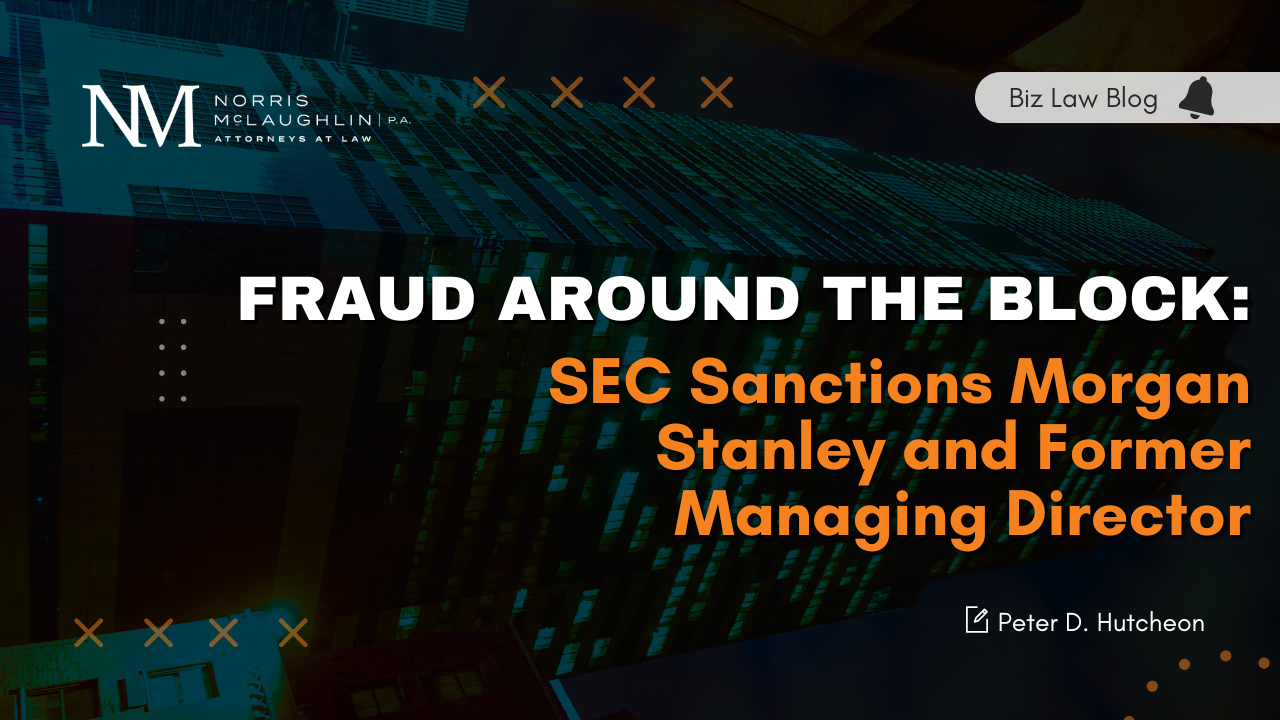“C.T.A.,” NOT “Chicago”

In the late 1960s when I was in law school, rock bands began to name themselves after public utilities and transportation entities, such as “Pacific Gas & Electric” with its gospel-tinged sound and even more famously the instrumental powerhouse (forgive the pun) the “Chicago Transit Authority.” In both cases, those choices were not well-received by the entities after which they were named. In the face of threatened legal action, “Pacific Gas & Electric” became “PG & E,” ironically foreshadowing what that utility now calls itself. Similarly, the “Chicago Transit Authority” became “Chicago.” Nonetheless, for American capital markets, “C.T.A.” became even more important than “Chicago.” Indeed, the C.T.A. became the “information grid” of those capital markets.
By the late 1970s, all stock exchanges registered with the U.S. Securities and Exchange Commission (“SEC”) were required to send a record of their trades AND quotes to a central consolidator, the Consolidated Tape System (“CTS”) in the case of trades and the Consolidated Quotation System (“CQS”) in the case of quotes. Both the CTS and the CQS are operated and governed by the Consolidated Tape Association (“CTA”), established by the SEC in 1974 under the authority of the Securities Exchange Act of 1934, as amended.
The Consolidated Tape System
The name “Consolidated Tape” comes from the ticker tape created by Edward Calahan in 1867. It was improved by Thomas Edison and patented in 1871. By the end of the 19th Century, most stockbrokers had offices near the New York Stock Exchange (“NYSE”) at 11 Wall Street in the south end of Manhattan Island, just up from The Battery. The brokers received a steady supply of the ticker tape reports of transactions on the NYSE. Messengers (called “pad shovers”) delivered these reports of trades by running (quite literally) between the Exchange’s trading floor and the brokers’ offices, where a shorter distance meant more up-to-date quotes. The ticker tapes were the common “confetti” for “ticker tape parades” of politicians and champion athletic teams on lower Broadway.
Mechanical ticker tapes gave way to electronic ones in the 1960s, but the “confetti” use continued through the celebration of the unexpected World Series victory of the New York Metropolitans in 1969 (I was in a third base box seat at Shea Stadium for the fifth and final game and watched the ensuing ticker tape parade a few days later).
Capital Markets
By 1976, there was a consolidated tape reporting transactions at each of the participating stock exchanges. Each entry on the tape displays the stock symbol for the issuer, the number of shares traded, the price per share, a triangle pointing up or down (showing whether the trade price is above or below the previous day’s closing price, a number showing how much higher or lower the trade price was from the last closing price and the exchange where the trade occurred). By 1978, the CQS was operational, providing the quotations for stock traded on an exchange (identifying the exchange) as well as stock traded by members of the Financial Institution Regulatory Authority, Inc. (“FINRA”) on the third market. By 1979, both NASDAQ and the Cincinnati Stock Exchange had become CQS participants.
These developments arose in the course of the capital markets working their way out from the close call of the market collapse in the late 1960s - early 1970s in dealing with what had been a marketplace of paper certificates and manual record keeping. See my April 29, 2021, blog post, “Tightening the Reins: SEC Approves Proposed Rule Change to Clearing Agency Investment Policy,” for some of the history of this period and the development of Clearing Agencies to respond to the need to automate and otherwise modernize the capital markets. These American market developments stand in stark contrast to the disarray extant in Europe, where there is no “consolidated” system of trading information. See my November 5, 2020, blog post, “The European Stock Markets: Still at Sixes and Sevens,” and especially the inability to trade the stock of Danone SA when one exchange shut down.
SEC Notice of Participants
In 2020, came increases to the membership of the CTA. The members, called Participants, were, as of June 29, 2020, the following:
- Cboe BYX Exchange, Inc.
- Cboe BZX Exchange, Inc.
- Cboe EDGA Exchange, Inc.
- Cboe EDGX Exchange, Inc.
- Cboe Exchange, Inc.
- FINRA
- The Investors’ Exchange LLC
- Long-Term Stock Exchange, Inc.
- MEMX LLC (formally admitted in the Summer of 2020)
- Nasdaq BX, Inc.
- Nasdaq ISE, LLC
- Nasdaq PHLX, Inc.
- The Nasdaq Stock Market LLC
- New York Stock Exchange LLC
- NYSE American LLC
- NYSE Arca, Inc.
- NYSE Chicago, Inc.
- NYSE National, Inc.
On July 29, 2020, the SEC issued a Notice that the Participants proposed to amend the CTA Plans to include MEMX LLC as a Participant. MEMX (standing for The Members Exchange) is an interesting new capital market development, a technology-driven stock exchange founded by its members in early 2019 seeking to create a lower-cost exchange for the benefit of its members. Those members were:
- BofA Securities
- Charles Schwab Corporation
- Citadel LLC
- E-Trade
- Fidelity Investments
- Morgan Stanley
- TD Ameritrade
- UBS
- Virtu Financial
Nine other firms invested in the MEMX: Blackrock, Citigroup, J.P. Morgan, Goldman Sachs, Wells Fargo, and Jane Street.
One might note that Citadel LLC and Virtu Financial are the two leading wholesale trading houses in the U.S. and have been the subjects of intense Congressional and regulatory scrutiny because they together handle some 70+% of stock trades and provide great amounts of payment for order flow, all of which figured prominently in the GameStop and other so-called “meme” stock trading excesses in the first half of 2021.
In October 2020, the CTA membership was amended again to add MIAX PEARL, LLC. MIAX PEARL is owned by Miami Holdings Inc., a financial services firm that owns and operates a number of trading bodies, including the Minnesota Grain Exchange. MIAX PEARL is focused primarily on option trading.
Trading and Reporting
Beginning in January 2020, the CTA entertained a series of proposed adjustments to its operations to address how accurately to report the effect of a regulatory halt to trading and then the reestablishment of trading in that security culminating on May 28, 2021, of approval by the SEC of the 36th Amendment to the CT Plan and the 27th Amendment to the CQ Plan. Finally, 2020 saw the CTA engaged in lengthy and complex discussions and revisions both to improve the transparency of Participant actions AND to enhance the disclosure of conflicts of interest, as detailed knowledge of trading and quotation information can potentially give Participants inappropriate insight into trading strategy and market anomalies. The revisions proposed in an SEC Notice of January 8, 2020, included required disclosures by professional advisers to the Participants, such as auditors and attorneys.
In connection with the January 8 Notice, the SEC posed 14 specific requests for comments. Those proposals, with some modifications by the SEC in response to comments submitted, were approved by the SEC on May 6, 2020, and deserve careful reading by Participants, their advisors, and others interested in the functioning of the U.S. capital markets and the flow of information about their operations. The SEC, in its May 6 action, emphasizes that “responses to the required disclosures must be sufficiently detailed to disclose all material facts to identify applicable conflicts of interest.” Further, the May 6 action requires Participants to identify situations where service providers are constrained from making full disclosure due to “potentially conflicting laws or professional standards” and to discuss “the basis for its inability to provide a complete response,” specifically citing concerns for attorney-client privilege.
Protecting Investors
The May 6 SEC action concludes with a reference to a Congressional finding that:
It is in the public interest and appropriate for the protection of investors and the maintenance of fair and orderly markets to ensure the prompt, accurate, reliable and fair collection, processing, distribution, and publication of information with respect to quotations and transactions in…securities and the fairness and usefulness of the form and content of such information. The conflicts of interest Amendments, as modified by the Commission, further these goals…
It would be well to attend to these Amendments. If you have any questions about this post or any other related securities or general business law matters, please feel free to contact me at pdhutcheon@norris-law.com.




